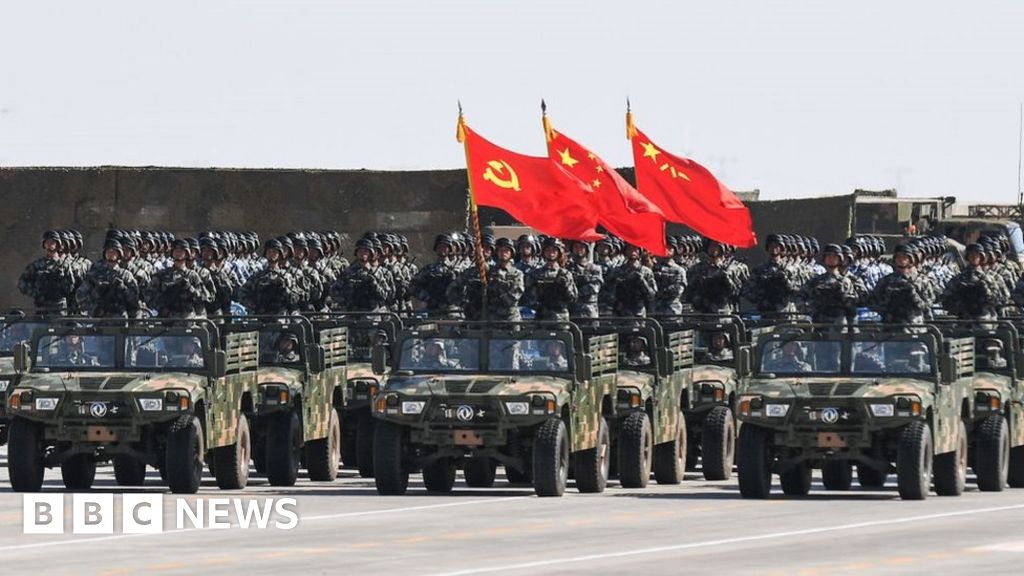image source, AFP via Getty Images
China says it will increase military spending by more than 7% this year, while warning of “escalating” threats.
It was announced in the rubber-stamp parliament, the National People’s Congress (NPC), which is set to confirm President Xi Jinping’s third term.
Beijing’s military budget – about $225bn (£186bn) – is dwarfed by that of the US, which is four times larger.
But analysts believe China is underestimating how much it spends on defense.
Over the past decade, China’s defense budget has risen by about 10% each year, peaking at 12.2% in 2014.
Outgoing Premier Li Keqiang wrote in his statement that “external efforts to contain and control China are increasing.”
“The armed forces must intensify military training and readiness,” he wrote.
The meeting also announced that China will continue its economic growth target, which has been reduced to around 5% this year.
Two sessions, known as meetings, are an annual affair.
But this year’s sessions are particularly important because delegates are expected to reshape several key Communist Party and state institutions.
This week’s NPC meeting will also formalize Mr Xi’s leadership of the country as he is elected as China’s president and chief of the armed forces.
The increase in military spending comes as Mr Xi navigates deteriorating relations with the US over the war in Ukraine and the recent spy balloon saga, even as he embraces Russian President Vladimir Putin.
US officials have also repeatedly warned that China could invade Taiwan in the coming years. China continues to show growing military power, including by launching ballistic missiles, in the air and seas around Taiwan.
China views self-ruled Taiwan as a breakaway province that will eventually come under Beijing’s control.
The NPC will also unveil a new premier, equivalent to China’s prime minister, who traditionally oversees executive aspects of the economy and governance.
Li Qiang, one of Mr Xi’s most trusted colleagues, is expected to take on the role.
Two Sessions of China: The Basics
- There are two sessions in Beijing Annual meetings China’s legislature and top political advisory body, which draws thousands of delegates from across the country
- The National People’s Congress In theory, the country’s equivalent of the most powerful state body is the Parliament. In effect it acts as a rubber-stamp organization for the ruling Chinese Communist Party, enacting key laws on decisions already made.
- The Chinese People’s Political Consultative Conference Having no real legislative power (CPPCC), it draws its members from various sectors of society. Their discussions are noteworthy for emerging social and economic issues







